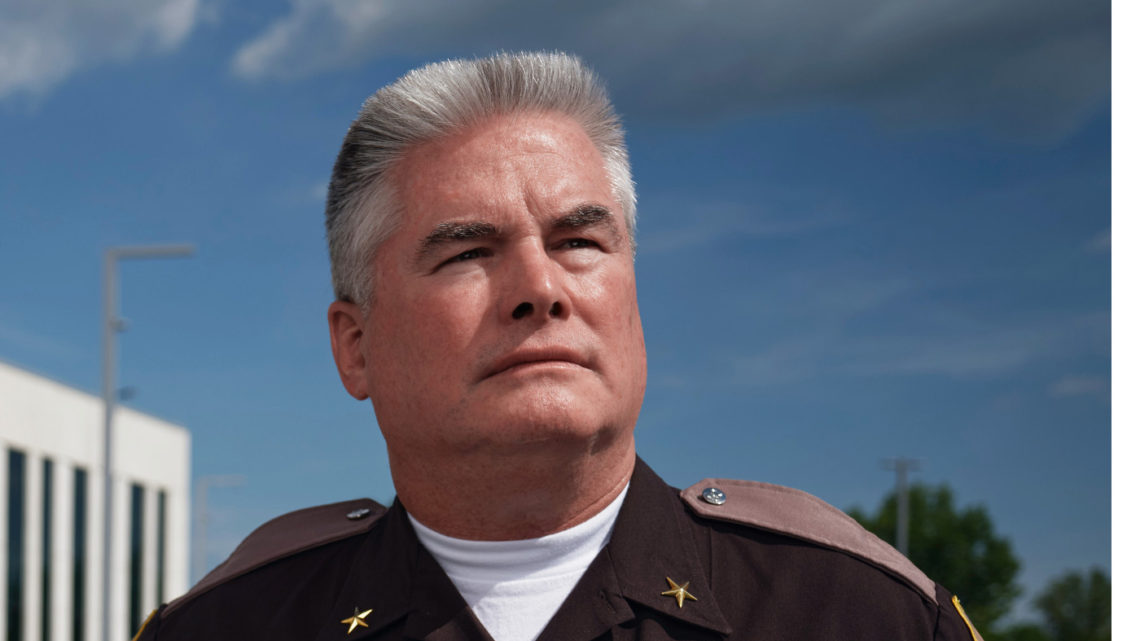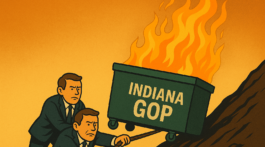by Kerry Forestal
While I’m proud of my record as Marion County Sheriff and will continue working to earn every vote, I’d like to take this opportunity to inform indypolitics.org’s readers about an issue that is at the front of our community’s mind and offer a practical solution.
Since 1994, Indiana has had a “habitual offender” law (Indiana Code 35-50-2-8), which allows for an additional sentence of at least two years, and up to twenty years, after a person is convicted of a third unrelated serious felony. The intent of the statute is to help protect the innocent public from harm at the hands of an offender who has demonstrated a propensity to continue committing violent crimes.
While I support this law, I believe that there is another opportunity to further insulate the public from violent criminals and the harm they do. As legislation for the 2023 session is currently being drafted, I would strongly recommend that the Indiana General Assembly address the issue of “credit time” provisions for repeat violent felons.
Currently, most convicted felons may receive both “good time credit” and “educational credit” under Indiana Code 35-50-6. These credits, as it stands now, can reduce a convicted felon’s sentence by as much as 25%, no matter how many times they have been convicted of a violent crime. I propose denying those credits to individuals convicted of second, and subsequent, unrelated violent felonies.
I am not proposing to replicate overly broad laws like California’s infamous three-strikes statute wherein we saw people sentenced to extraordinarily long prison stays after being convicted of a relatively minor offense. Rather, this requirement should be reserved for the worst of the worst in accord with Indiana’s pre-defined list of violent offenses (Indiana Code 11-12-3.7-6), which includes heinous crimes such as Murder, Aggravated Battery, Rape, and Robbery. Further, this provision would only come into play upon a second, and any subsequent, conviction for such a crime.
I support the concept that Indiana’s jails and prisons can serve as a place for a person to reflect upon what they have done and positively change the trajectory of their lives going forward. We host dozens of productive programs at the Marion County Adult Detention Center (ADC) designed to help the people in our custody break free from addiction, enhance their mental health, become engaged parents, or better manage household finances. In my career, I have seen hundreds of people successfully participate in these programs, or even complete a formal education.
At the same time, I firmly believe that the time for violent offenders to make the choice to turn their lives around should be after their first violent felony incarceration. As such, that should be the only period wherein they are eligible for good time credit. After that, I think if they have not learned from the opportunity, we should. Such twice-convicted violent felons should serve and complete their full sentences.
I know that some believe having such credits available helps manage a difficult incarcerated population. However, I would note that I and my team manage the ADC without the benefit of such credits, as do all other Indiana Sheriffs.
In conclusion, denying repeat violent felony offenders such credits will help us better protect innocent citizens in the community. If ex-convicts know that they will have to serve full and complete sentences, perhaps they will think twice about re-offending. If they do not, at least they will be separated from law-abiding citizens a little longer. Perhaps they will even consider relocating from Indiana.
Simply put, repeat violent felons who do the crime should do the time – all of it.
*******************
Now through Election Day, Indy Politics will run articles from various candidates. To submit one (500-600 words) e-mail us at abdul@indypolitics.org.














